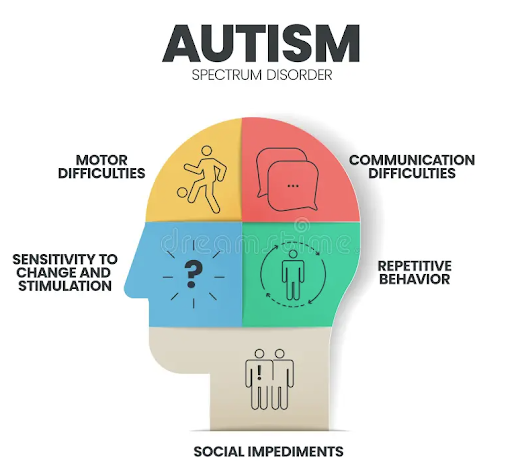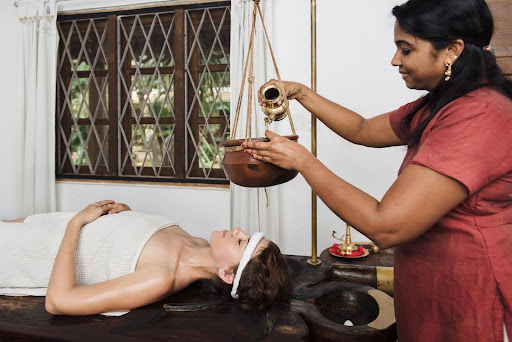Ayurveda Treatment for Autism: 5 Ways to a Transform your Life

Introduction to Ayurveda and Autism
Ayurveda, the ancient Indian system of medicine, offers a holistic approach to health and wellness, emphasizing balance in body, mind, and spirit. This comprehensive system, dating back over 5,000 years, provides insights into managing various health conditions, including neurodevelopmental disorders like autism. Autism, characterized by challenges in social interaction, communication, and repetitive behaviors, has seen a rise in prevalence globally. Ayurveda approaches autism by focusing on the individual as a whole, rather than just the symptoms, offering personalized treatment plans that encompass dietary changes, herbal remedies, and lifestyle adjustments to restore balance and improve overall well-being.
Understanding Autism Through an Ayurvedic Lens
In Ayurveda treatment for Autism, the perspective on autism is deeply rooted in the principles of doshic imbalances and the accumulation of Ama, or toxins, within the body. This ancient system of medicine identifies three primary doshas — Vata, Pitta, and Kapha — which are essential to our physiological and psychological processes. Here’s a closer look at how Ayurveda views autism:
Doshic Imbalances: Ayurveda posts that imbalances in the Vata, Pitta, and Kapha doshas can significantly impact both the mind and body. Such imbalances are believed to contribute to the various symptoms observed in individuals with autism.
Predominance of Vata: Specifically, Ayurveda suggests that a Vata imbalance is often at the core of autism. Vata governs movement, attention, and sensory processing. Therefore, an imbalance can lead to challenges in these areas, manifesting as symptoms commonly associated with autism.
Accumulation of Ama: Beyond doshic imbalances, Ayurveda also highlights the role of Ama, or toxins, which can accumulate due to improper digestion. This accumulation is thought to adversely affect cognitive and neurological development, adding another layer of complexity to autism.
Given this understanding, Ayurveda treatment for autism focuses on several key objectives:
Detoxifying the Body: The primary aim is to cleanse the body of Ama, thereby reducing the toxic load that can hinder cognitive and neurological functions.
Balancing the Doshas: Through dietary modifications, herbal remedies, and lifestyle adjustments, Ayurveda seeks to restore balance among the Vata, Pitta, and Kapha doshas. This balance is crucial for improving the symptoms associated with autism. Supporting Nervous System and Brain Function: Ayurvedic treatments also emphasize the importance of nurturing the nervous system and enhancing brain function, which are vital for managing autism effectively.
Having Problems With Depression?
Get Help from Experts from the Comfort of Home
Ayurveda Treatment For Autism Strategies
Ayurveda offers a multifaceted approach to managing autism, focusing on restoring balance and enhancing overall well-being. Here are the key strategies employed in Ayurvedic treatment for autism:
Panchakarma Therapy: This detoxification process is designed to cleanse the body of toxins (Ama) that can impair cognitive and neurological functions. Techniques such as Virechana (purification) and Basti (medicated enema) are often recommended to eliminate toxins and balance the doshas.

Nasya Treatment: Administration of medicated oils through the nasal passages, known as Nasya, is utilized to improve brain function and address imbalances affecting the nervous system.

Abhyanga (Ayurvedic Massage): Regular Abhyanga with medicated oils can help soothe the nervous system, reduce anxiety, and improve sensory processing in individuals with autism.

Herbal Remedies in Ayurveda for Autism
Ayurvedic herbal remedies play a crucial role in supporting the treatment of autism, with specific herbs selected for their ability to balance the doshas and support mental health:
Brahmi (Bacopa monnieri): Renowned for its cognitive-enhancing properties, Brahmi supports memory, focus, and overall brain function.
Ashwagandha (Withania somnifera): This adaptogenic herb helps reduce stress and anxiety, promoting emotional stability and resilience.
Vacha (Acorus calamus): Vacha is known for its ability to improve speech and communication skills, a common area of difficulty in autism.
Shankhpushpi (Convolvulus pluricaulis): Often used for its neuroprotective properties, Shankhpushpi enhances cognitive functions and calms the mind.
Dietary Recommendations for Autism in Ayurveda
Diet plays a significant role in Ayurveda treatment for autism, with specific dietary recommendations aimed at balancing the doshas and supporting neurological health:
Sattvic Diet: A diet rich in Sattvic foods, which are fresh, nutritious, and easy to digest, is recommended to improve mental clarity and calmness. Examples include fresh fruits, vegetables, nuts, seeds, and whole grains.
Avoiding Ama-Producing Foods: Foods that are processed, stale, or difficult to digest should be avoided as they can contribute to the accumulation of toxins (Ama) in the body.
Inclusion of Omega-3 Fatty Acids: Foods rich in omega-3 fatty acids, such as flaxseeds, walnuts, and fatty fish (for non-vegetarians), are encouraged for their neuroprotective benefits.Herbal Teas: Incorporating herbal teas made from herbs like Brahmi, Ashwagandha, and Tulsi can support the nervous system and aid in reducing symptoms of autism.
Lifestyle and Routine Adjustments for Managing Autism

Incorporating specific lifestyle and routine adjustments can significantly enhance the effectiveness of Ayurvedic treatment for autism. These adjustments aim to create a structured and supportive environment that promotes balance and well-being:
Establish a Daily Routine: Consistency and predictability can help reduce anxiety and improve behavior in individuals with autism. Establishing a regular schedule for meals, sleep, therapy sessions, and recreational activities can provide a sense of security and stability.
Sensory Integration Activities: Many individuals with autism experience sensory processing challenges. Incorporating sensory integration activities, such as using weighted blankets, sensory bins, or swings, can help manage sensory sensitivities and improve focus and attention.
Yoga and Meditation: Regular practice of yoga and meditation can be particularly beneficial for individuals with autism, helping to calm the mind, reduce stress, and improve concentration. Simple yoga poses and mindfulness exercises tailored to the individual’s capabilities can be incorporated into the daily routine.
Nature Exposure: Spending time in nature and engaging in outdoor activities can have a calming effect and promote sensory integration. Activities like gardening, nature walks, or simply playing outdoors can be therapeutic.
Starting Your Ayurvedic Journey for Autism Management
Embarking on an Ayurvedic journey for autism management involves a holistic approach that encompasses diet, lifestyle, and herbal treatments. Here’s how to begin:
Consult an Ayurvedic Practitioner: A practitioner experienced in managing neurodevelopmental disorders can provide personalized recommendations based on the individual’s dosha imbalances and specific needs.

Gradual Introduction: Start with small, manageable changes to the diet and daily routine before introducing more complex treatments like herbal remedies or Panchakarma therapy.
Education and Support: Educating yourself and your family about Ayurveda and its principles can help foster a supportive environment for implementing these changes. Joining support groups or communities can also provide additional resources and encouragement.
Monitoring and Adjustments: Regularly monitor the individual’s response to the Ayurvedic interventions and be prepared to adjust the treatment plan as needed, in consultation with your Ayurvedic practitioner.
Conclusion
Ayurveda treatment for autism offers a comprehensive and holistic approach to managing autism, emphasizing the importance of balance in body, mind, and spirit. By integrating Ayurvedic treatments, herbal remedies, dietary changes, and lifestyle adjustments, individuals with autism can experience improvements in their symptoms and overall quality of life. Starting an Ayurvedic journey requires commitment and patience, but with the guidance of experienced practitioners and the support of loved ones, it can be a transformative path toward wellness and balance.

Dr. Prakhar Jain is a Psychiatrist in Mumbai, and has an experience of 7 years in this field.
Quick Links
-
Homepage
-
About Us
- Our Services
- Our Blog
-
Contact Us
- Privacy Policy
